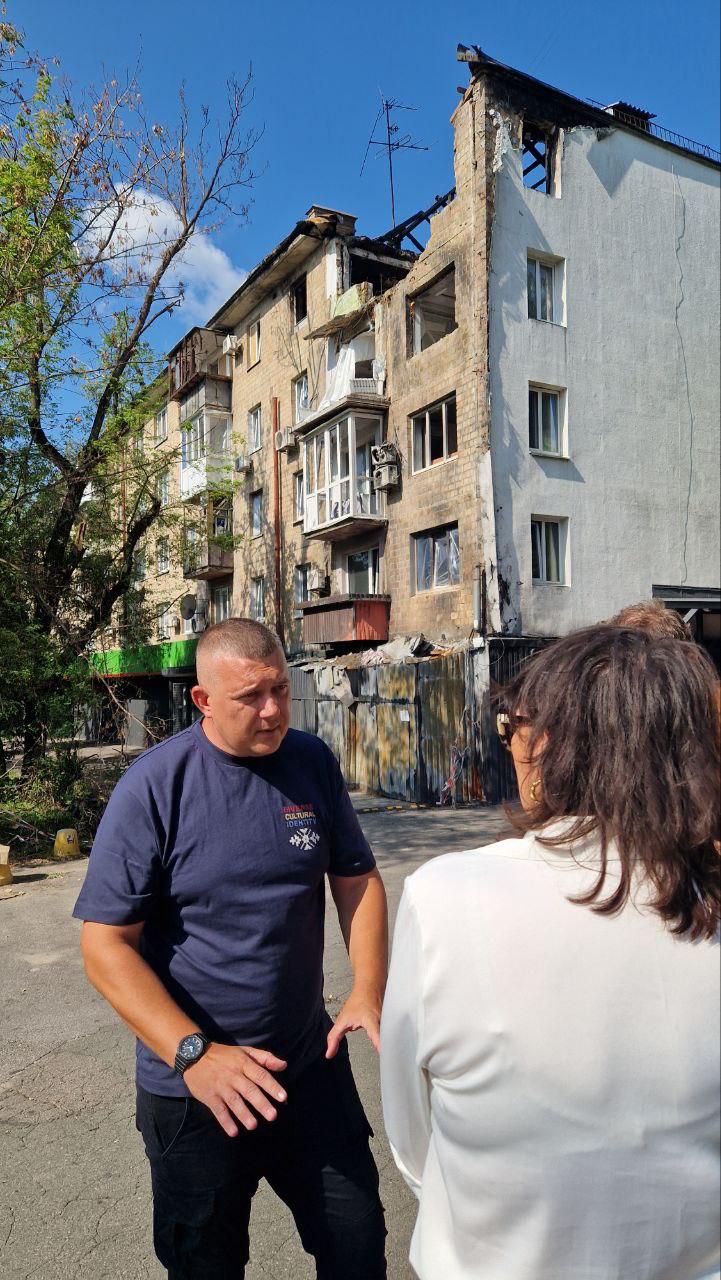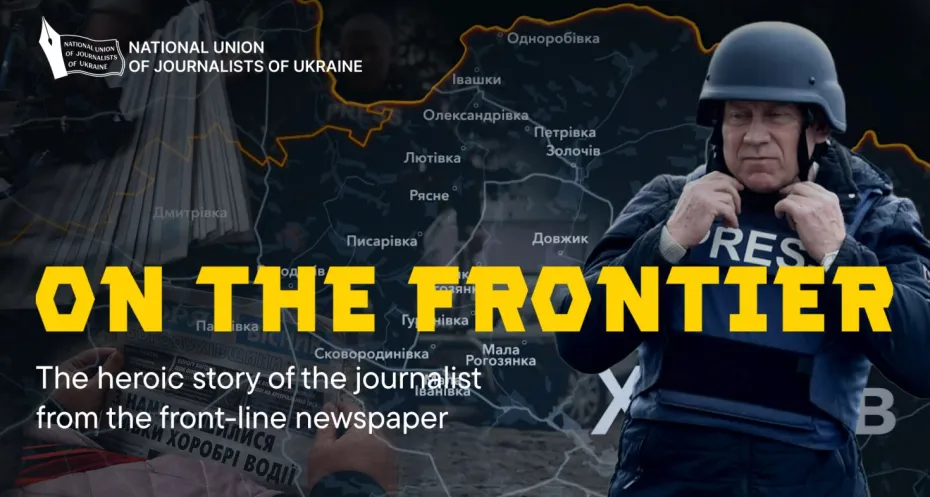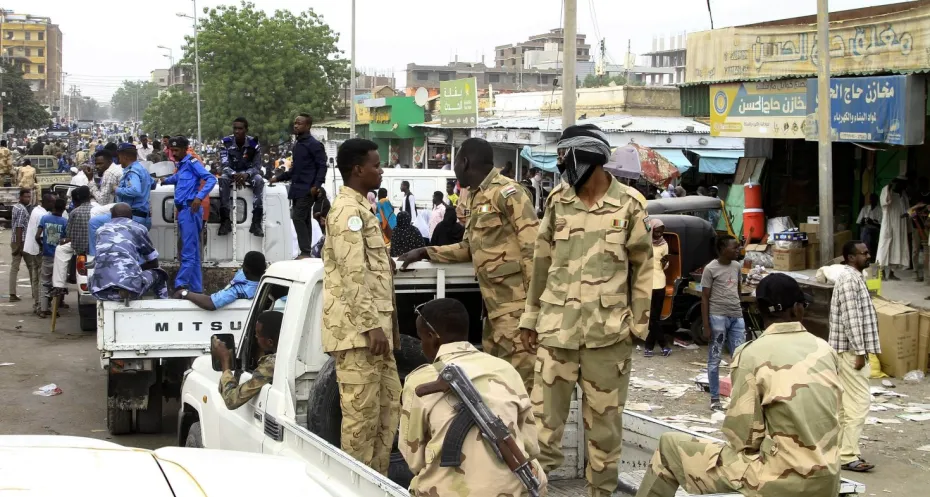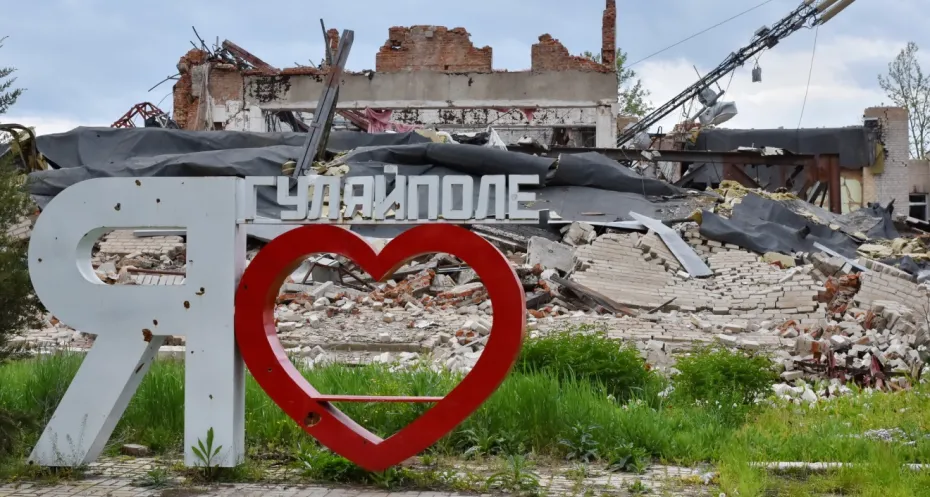Blog Ruth Kronenburg: a 5-day journey through war-torn Ukraine
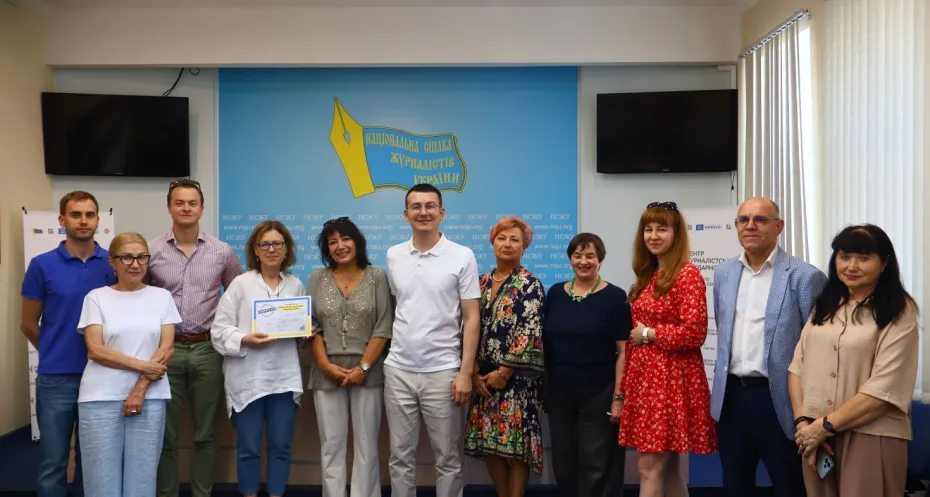
Ruth Kronenburg, Executive Director of Free Press Unlimited (FPU), made a five-day trip through Ukraine. She met with journalists who work under extreme conditions. She spoke with our partner organisations about the safety of journalists on the front line and the importance of press freedom for Ukraine's democratic future. After three and a half years of war, the country is longing for peace. The sacrifices are great and weigh heavily, but the resilience of journalists gives hope and inspiration to continue our commitment to reliable and independent news.
“The train travels through an endless landscape of cornfields. No wonder Ukraine is called the breadbasket of Europe. I am on my way from Rzeszów in Poland to Kyiv, the capital of Ukraine. Passport control at the station took some time and the weather is drizzly. But the train is spacious and I can access the internet on my smartphone. At the border between Poland and Ukraine, the train is checked and I get a stamp in my passport from the military police without any questions. Then I notice that the train is full, mainly with women and children. There are only a few men, and they are often elderly. This makes sense, as most younger men are conscripted and cannot simply leave the country.”
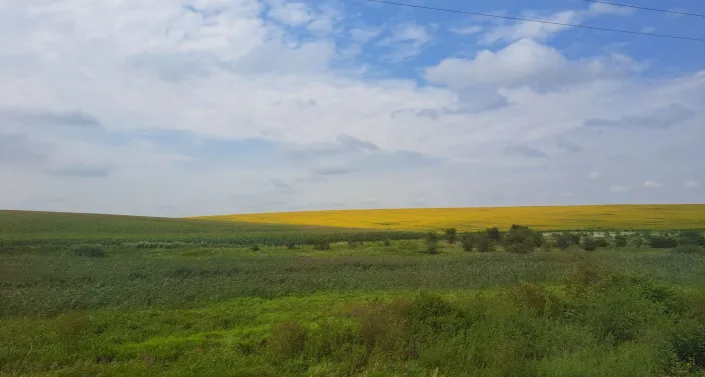
Solidarity hubs
FPU has been working in Ukraine for a long time and supports various media outlets and journalists. Following Russia's invasion in February 2022, Free Press Unlimited set up Media Lifeline Ukraine. With the donations, we have provided safety training, equipment, evacuations and accommodation for displaced journalists in collaboration with our sister organisation Free Press Eastern Europe (FPEE). In Poland, a hub for journalists was supported for over a year to ensure independent journalism. During that time, we also forged close ties with the National Union of Journalists of Ukraine (NUJU) and its chairman Sergiy Tomilenko.
During the war, so-called solidarity hubs for journalists have proven crucial. NUJU has set up a total of six hubs in Ukraine, three of which are located in the east of the country along the front line. These are safe places where journalists can catch their breath, charge their equipment, work on their stories and talk to colleagues. A hub for journalists was also opened in Gaza, Free Press Unlimited was able to finance the solar panels for this.
“Hromadske has been a long-standing partner of FPU/FPEE. Their location offers a great view of Kyiv. Editor-in-Chief Kyrylo Loukerenko takes us through his story. The staff are tired and stressed after three and a half years of war. The termination of USAID funding by the US has hit the broadcaster (with an online reach of 23 million) hard. Hromadske is therefore in the process of setting up a commercial branch, offering light entertainment to help people forget the war for a while. However, Krylyo assures us that the broadcaster will continue to take its investigative journalism very seriously. Hromadske was closely involved in the investigation into anti-corruption legislation in Ukraine and the controversy surrounding it. That will not change. The station has not only been affected financially. Employees have lost their homes and cars in bombings. And Friday is the funeral of Victoria Roshchyna, the young journalist who disappeared during a reporting trip to Russia and died in captivity in Russia. She also worked for Hromadske.”
Media in the Donbas
The discontinuation of USAID has major consequences for media in Ukraine. One of these news organisations is Donbas Media. It is estimated that around 100 media organisations will have to close their doors by the end of this year. Sometimes this happens overnight, without warning. Many media organisations are living off their assets. The bleak outlook has a profound impact on the lives and well-being of journalists. This is also evident from the story of Liubov Rakovytsia, who organises the Donbas Media Forum every year together with her colleague Yana.
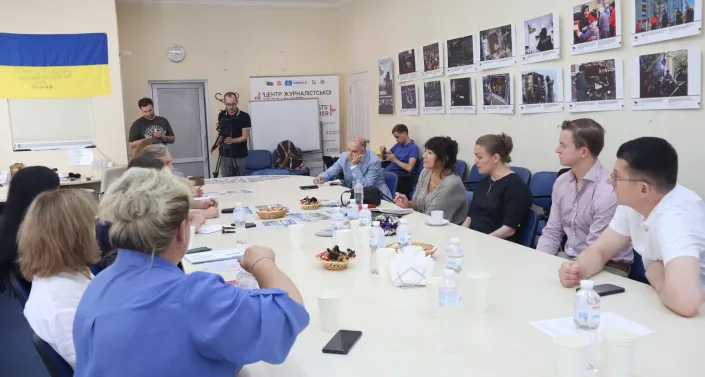
“After an impressive day, we eat in the city. At ten minutes to midnight, the air raid siren goes off. We quickly head to the shelter in the garage. Fortunately, the all-clear signal comes soon after and we return to our hotel room. This is the daily reality for people here. Life goes on with work, school and family, but also with the constant threat of air raid sirens. How will this country move forward after the war?”
Ukraine after the war
The impact of the USAID freeze becomes even clearer in conversation with Yarislov Yurshyshin, People's Deputy of Ukraine. Even if independent media survive the war, there will be major financial and capacity problems after the war. In addition, the media are not well prepared to report on free elections after the war. Much equipment has been damaged or destroyed over the past three years. Who will repair it and with what money? Training is needed in election reporting, the use of AI, the use of social media, and digital security for journalists. Currently, more than 800 acts of violence by Russia against journalists have been recorded and documented, including 107 murders, 12 kidnappings and 29 imprisonments. These acts of violence are known to the Attorney General, but are not on the priority list. There is no protocol to protect journalists and allow them to carry out their work safely.
The media in Ukraine currently do not have free access to reporting from parliament. Live coverage of debates is not permitted, but some opposition members do stream from parliament on social media. Afterwards, parliament itself posts videos of debates online, but only after checking them and often censoring them. In Ukraine, journalists are also very concerned about the situation after the war and free elections. That is why Free Press Unlimited continues to support independent news.
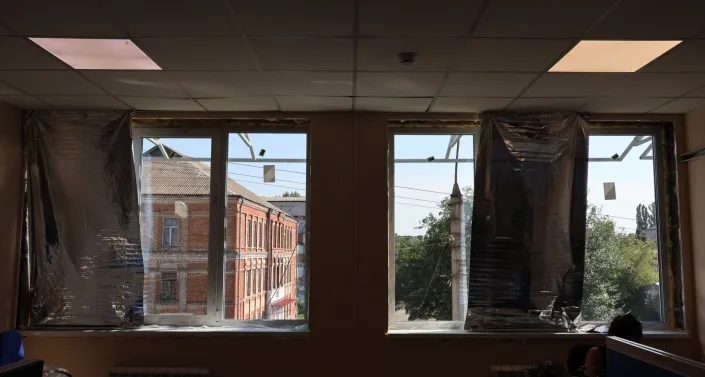
War reporting is dangerous work. Foreign journalists often rely on fixers and translators. Andrij Kovalenko is CEO of the NGO Academy of Ukrainian Press. His organisation provides training and arranges contacts with the army so that journalists can see for themselves what is happening at the front. Unlike parliament, the army is fairly open.
“On this last day of the visit, we meet another Andrij, Yurychko. He teaches at the University of Kyiv and has helped translate training courses via Totem, the international training platform for journalists. They drive me past the places where one of the biggest attacks by Russian drones and missiles on Kyiv took place last week. The restaurant has already been rebuilt, the crater in the road is no longer visible and the metro is running again. On the other side of the road, however, half of the buildings are still cordoned off and there is not a single intact window pane left. Yet people still live in these shot-up flats. Gas and electricity are still cut off. The hope is that it will be repaired before winter."
Refugee journalists
Reporters Respond is Free Press Unlimited's emergency fund. Every year, around 1,600 journalists in distress appeal to this fund. The support varies enormously, from a secure VPN connection to legal support in case of imprisonment, from equipment to money for living expenses.
“Numbers are important, but they don't say much about the significance of Reporters Respond. The stories I heard today from Yevheniia Virlych, Olena Kalaitan, Lidiia Tarash and Olena Vanina do. For Yevheniia, it literally saved her life. In the early days of the war, she had to flee Kherson. At that time, NUJU ensured that journalists had access to cash via Reporters Respond so that they could cover their living expenses. She fled to Kyiv, where her house was also shelled. Olena fled Mariupol on foot. Half the city has been shot to pieces by Russia, and the newspaper she worked for was used for Russian propaganda. Olena was also able to survive thanks to financial support. Lidiia was threatened with arrest after Russia wanted to use her newspaper “Our World” for propaganda. She received psychosocial support from NUJU and support from Reporters Respond to escape with her two small children. Olena was a television presenter for a national broadcaster in Kherson. The shelling made her work for the TV station impossible, but she continued to document the war with her phone. At the moment she is unable to resume her work, but with support for her livelihood she has been able to flee Kherson and is now staying in Kyiv. Despite everything, Olena wants to return to work very soon.”
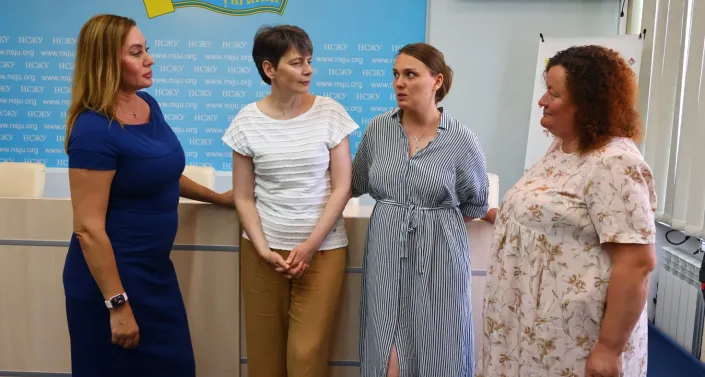
We are committed to supporting journalists worldwide and keeping them safe. So that everyone continues to have access to reliable information.
